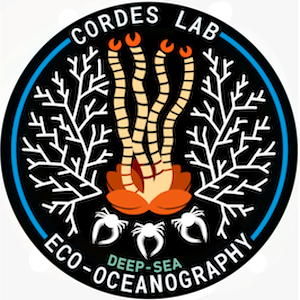Teaching Philosophy
My teaching philosophy is largely derived from the concept that people will be most inspired to succeed if you treat them as equals and empower them to accomplish their goals. I try to provide my students, whether they are in the classroom or in my research lab, with the support and the tools to discover the world for themselves, but also the autonomy to make their own decisions and choose their own path. Students feel empowered by hands-on experiences where they discover that they can conduct the science that they had previously only been reading about. Our best students will someday fill our shoes and will advance our fields beyond where we can predict. If they are not treated as equals and made aware that they have the capacity to excel, they will not be inspired to take the risks necessary to attain these lofty goals.
Biology 1911: Honors Introductory Biology
Introductory Biology is an undergraduate survey course designed for honors students who are pursuing biology-related careers, or otherwise interested in the diversity and function of life on Earth. The course covers a broad range of topics including ecology, evolution, biological diversity of plants and animals, physiology and conservation biology. We begin by defining evolution, examining how it is studied, how new species are defined, and how life forms are classified. We then examine a number of different life forms at increasing levels of complexity, from the microbes with their incredible metabolic diversity that sustains life on earth, through the Eukaryotes including their structure-function, reproduction, feeding strategies and distribution as well as strategies used by different organisms to adapt to their environments. Moving on to ecology and biodiversity, we examine the interactions among all of these forms of life and how biological communities are organized. Students are also introduced to the emerging field of conservation biology and sustainability science through a series of outside readings.
Biology 3196: Experimental Marine Biology
Experimental Marine Biology is an upper level Biology course focused on the types of experiments that are used to further the science of Marine Biology. The course will be structured around three themes: Oceanography, Physiology, and Ecology. The Oceanography section will examine the marine environment in terms of the physics of current flow and the chemical properties of seawater. The Physiology section will examine how different organisms respond to these abiotic factors. In the Ecology section, we will discuss how organisms interact with each other as individuals and populations, and how communities and ecosystems are structured.
Biology 3245: Marine Ecology
Marine Ecology is an upper-level Biology course focused on the variety of organisms and ecosystems that make up the marine environment. The course will proceed through the different marine ecosystems, from the shoreline to the open ocean and from the surface to the bottom of the ocean. We will discuss the species of microbes, plants, and animals that inhabit these environments and how they interact to form the various communities present in the ocean.
Graduate Seminars
Three credit graduate seminars are also offered periodically. In the past, topics have included Community Ecology (focusing on metacommunity theory), Deep-Sea Biology, Experiments in Ecology, and Use of Stable Isotopes in Ecological Research. The basic format of the seminar includes a discussion of the recent literature in the area being covered, with papers presented by the grad students on a rotating basis. To compliment these discussions there are short weekly assignments, such as revising a particular section of the paper we read that week or proposing undergraduate laboratory exercises that could demonstrate the principles being discussed. In addition, there is typically a semester long project completed by each grad student on a topic relating the subject of the seminar to their dissertation research.
